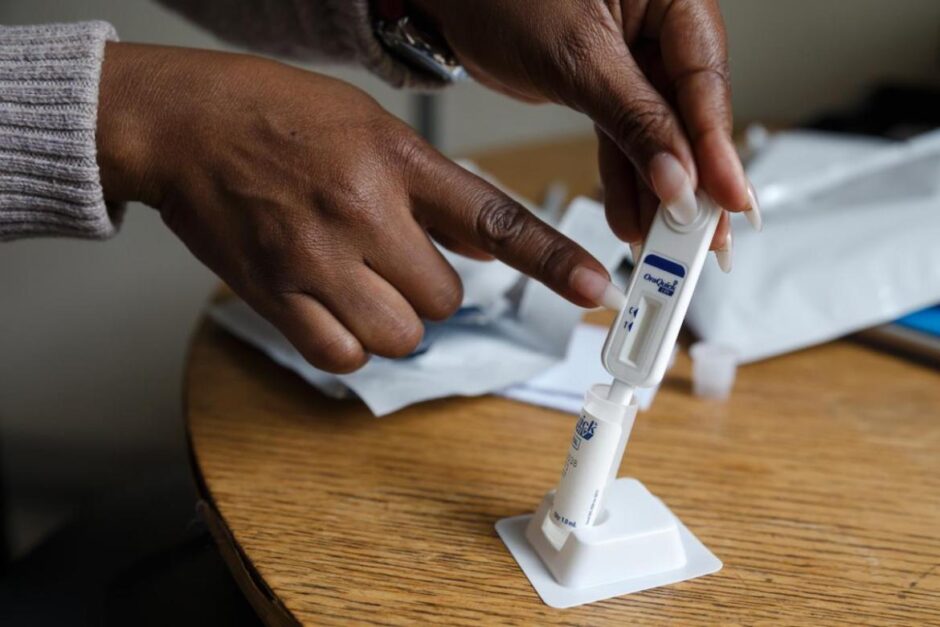Researchers have announced that the first woman and the third person ever has been cured of HIV, the virus that causes AIDS. The woman was cured following a new stem cell treatment method that involved umbilical cord blood.
Here is what you need to know about the new stem cell treatment method.
Who is the woman who was cured of HIV?
The full identity of the woman who was cured cannot be divulged due to privacy concerns. However, she is now past middle age, is of mixed race and is being called the “New York patient.”
Dr Steven Deeks, an AIDS expert at the University of California, San Francisco, who was not involved in the treatment, said the woman’s race and sex are a huge step in developing a cure for HIV.
“The fact that she’s mixed race, and that she’s a woman, that is really important scientifically and really important in terms of the community impact,” said Dr Steven Deeks to the New York Times.
How Was She cured of HIV And How Long Had She Had It?
The “New York patient” was diagnosed with HIV in June 2013 and put on antiretroviral therapy. In March 2017, she was diagnosed with leukaemia.
In August 2017, she received a transplant of umbilical cord blood from a donor with the mutation that blocks HIV’s entry into cells. The cord blood contains stem cells that amount to a powerful nascent immune system.
She was also given blood from a close relative to give her body temporary immune defences while the transplant took. It can take up to six weeks for cord blood cells to engraft.
Dr Koen van Besien from the stem cell transplant program said,
“The role of the adult donor cells is to hasten the early engraftment process and render the transplant easier and safer.”
Following the treatment, the woman was discharged from the hospital after 17 days. She did not suffer the brutal side effects commonly associated with bone marrow transplants.
How long has the cured woman been free of HIV?
Following the transplant treatment, the patient opted to stay on antiretroviral therapy for 37 months. It’s now 14 months since she discontinued the antiretroviral therapy.
Multiple tests have shown that she has no signs of HIV in her blood and does not seem to have detectable antibodies to the virus.
Can Anyone With HIV Be Treated Using The New Transplant Method?
Dr Deborah Persaud, a pediatric infectious disease specialist at the Johns Hopkins University School of Medicine, said the new approach is unlikely to become available for ordinary people. However, she is hopeful that it will help in providing inspiration for an easier to create cure.
She said that “while we’re very excited” about the new case of possible HIV cure, the stem cell treatment method is “still not a feasible strategy for all but a handful of the millions of people living with HIV.”
Dr van Besien also added,
“We estimate that there are approximately 50 patients per year in the U.S. who could benefit from this procedure.”
You should also note that medical experts stress that it is highly unethical to attempt an HIV cure through a stem cell transplant in an otherwise healthy patient.
This is because stem cell transplants are highly invasive, risky and sometimes fatal. The transplants are generally offered only to people with fatal cancer who have exhausted all other options.
[Photo: WHO]
You said she is the third person to be cured. Who were the first two?
Two other people were previously cured of HIV: “The Berlin Patient,” Timothy Ray Brown (published in 2009) and Adam Castillejo (published in 2019).
Brown and Castillejo received bone marrow transplants from donors who carried a mutation that blocks HIV. However, both men suffered severe side effects.
The New York Times reports,
In the previous cases, as the bone marrow transplants replaced all of their immune systems, both men suffered punishing side effects, including graft versus host disease, a condition in which the donor’s cells attack the recipient’s body. Mr Brown nearly died after his transplant.
Mr Castillejo’s treatment was less intense, but in the year after his transplant, he lost nearly 70 pounds, developed a hearing loss and survived multiple infections, according to his doctors.
Timothy Ray Brown stayed HIV-free for 12 years until he died in 2020 of cancer.
 Moni Malawi
Moni Malawi 
